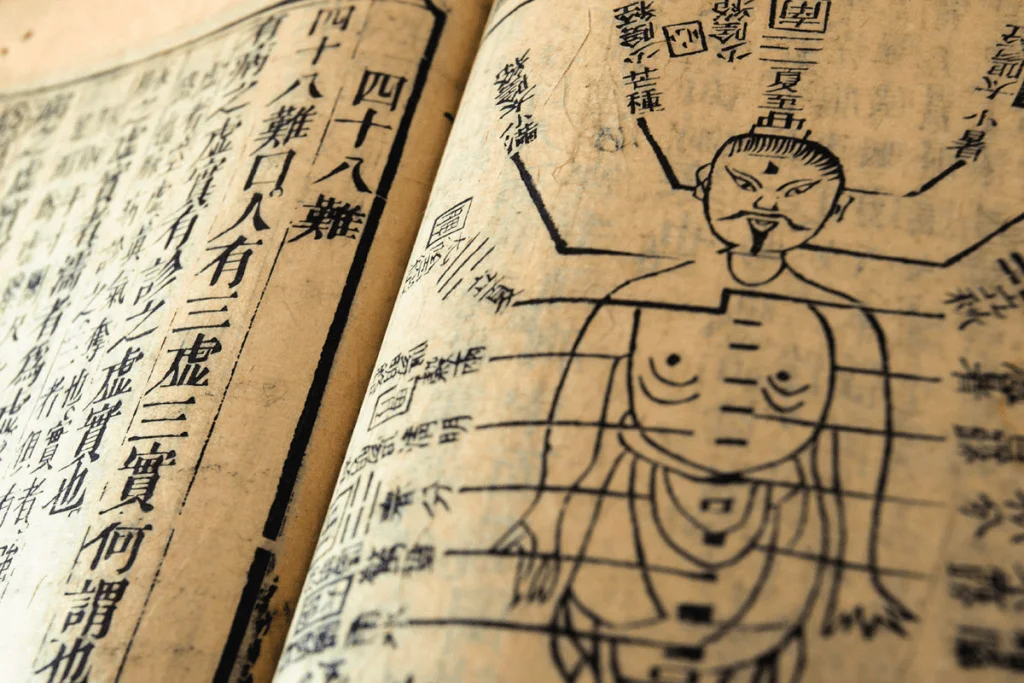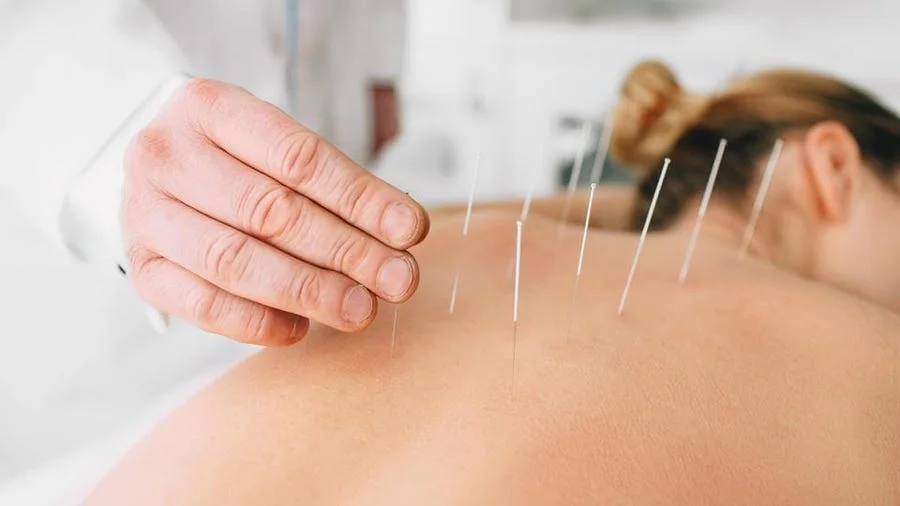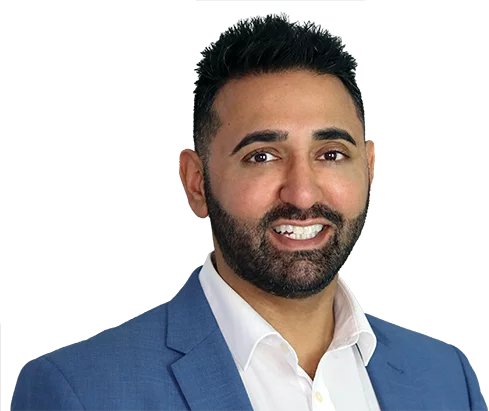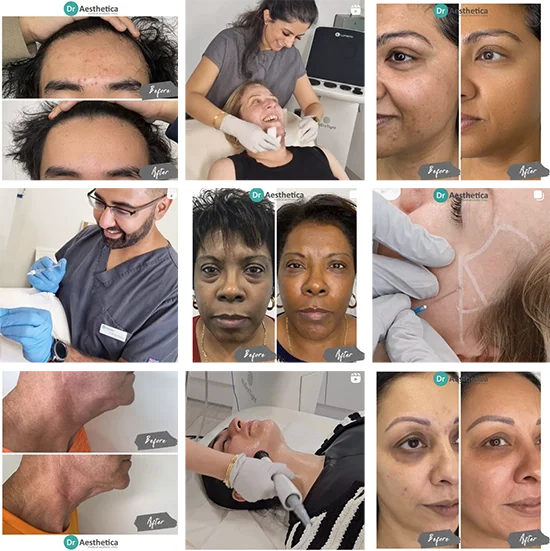Let Me Give you a Crash Course on Acupuncture
Acupuncture is an ancient Chinese healing practice. Which involves the insertion of thin needles into specific points on the body. Based on the idea of Qi - crucial energy flows through the body. People use acupuncture to treat a wide range of conditions, from chronic pain and anxiety to digestive disorders and respiratory problems.
A Brief History of Acupuncture
Acupuncture is a traditional form of medicine that has been practised in China for over 2,500 years. It originates in the Huangdi Neijing or the Yellow Emperor's Classic of Internal Medicine.
A text on Chinese medicine made between the 3rd and 2nd centuries BCE.
As the legend states - acupuncture emerged by accident. The story is about a Chinese soldier who got cured of his chronic pain after being hit by an arrow in a non-fatal spot.
This led to more research on the use of needles on the human body, and the practice of acupuncture was born.
Acupuncture remains controversial in some circles despite its history and extensive use. With its effectiveness and scientific validity questioned.
Many studies have shown that acupuncture can be a safe and effective treatment option for a range of conditions though. Acupuncture continues to be an important part of traditional Chinese medicine.

The Science Behind Acupuncture for Bruxism
Bruxism is a common condition characterised by teeth grinding and jaw clenching. It can lead to a range of symptoms, including headaches, jaw pain, and tooth sensitivity.
Treatments for bruxism use oral appliances or medications to reduce symptoms. But acupuncture offers a non-invasive and effective alternative.
Acupuncture is thought to work for bruxism by regulating the nervous system's activity -
which controls muscle activity, including the muscles used in chewing and biting.
Acupuncture does its job by stimulating specific points in the body that are linked to the nervous system.
By stimulating specific points in the body, acupuncture can help to bring back balance to the nervous system and improve the flow of Qi.
This reduces the frequency and intensity of teeth grinding to help provide relief from its symptoms. Several studies have found acupuncture to be an effective substitute therapy for daytime and nighttime bruxism.
Wondering What to Expect During an Acupuncture for Bruxism Session?
During your initial consultation before your session, your acupuncturist will check your health and ask about your symptoms. This is to determine the best course of treatment.
They may also ask about your medical history and any medications or supplements you are currently taking.
During an acupuncture session for bruxism, a practitioner will insert needles into specific points on the head, neck, and jaw muscles.
The needles are left in place for a period of time, between 20-30 minutes. During this time the patient may experience a sense of relaxation and calm.

Is Acupuncture Safe?
Acupuncture is considered to be safe but it's important to choose a qualified practitioner. Discuss any potential risks or side effects with a healthcare professional.
Some individuals may experience mild discomfort or bruising at the site of the needle insertion, others may experience fatigue or lightheadedness after the session.
Acupuncture for TMJ: Does Acupuncture Work to Treat TMJ Disorder?
Some evidence exists to suggest that acupuncture can be a good treatment for TMJ (temporomandibular joint disorder).
Tmj affects the jaw joint and can cause pain, discomfort, and difficulty with chewing and speaking.
Studies show acupuncture can help to reduce pain and improve jaw function in people with TMJ disorder, by increasing relaxation and reducing tension in the jaw and surrounding muscles.
Yet, as with any medical treatment, effectiveness varies with the person. A treatment plan should be made including physical therapy, medications, or lifestyle changes.
Consult with a qualified healthcare provider before starting any new treatment for TMJ disorder. To ensure that it is safe and suitable for your individual needs.
This article was read and reviewed by the face of DR Aesthetica himself - DR Baldeep Farmah.
Now Lets Review the Success Rates of Acupuncture for Bruxism!
Acupuncture has been shown to be effective for many people with bruxism, but not everyone will find it helpful. The effectiveness of acupuncture can vary depending on individual factors such as
- the severity of the bruxism,
- underlying health conditions,
- and response to treatment.
The effectiveness of acupuncture may also depend on the skill and experience of the acupuncturist. Finding a licensed and experienced acupuncturist who is an expert in the treatment of bruxism is important. This ensures that you receive the best possible care.
It is also worth noting that acupuncture is not a cure for bruxism. It can help to reduce the frequency and intensity of teeth grinding but it may not completely end the condition. So, it is important to combine acupuncture with other treatments such as stress management techniques,
lifestyle modifications, and proper dental care to achieve the best results.
Acupuncture is not effective for everyone with bruxism but it can be a safe and effective alternative therapy for alleviating the pain many people experience with the condition.
Interested in trying acupuncture for bruxism? be sure to discuss your treatment options with a licensed and experienced acupuncturist.
Are There Alternative Treatments for your Bruxism?

While acupuncture has been shown to be an effective treatment for bruxism, other alternative therapies may also provide relief.
One option is using oral appliances, such as mouth guards or splints. These protect your teeth from further damage caused by clenching and grinding.
But they work to reduce the symptoms of bruxism and don't tackle the underlying cause...
Other alternative treatments include physical therapy and relaxation techniques
like meditation or progressive muscle relaxation.
which can help improve jaw alignment, and reduce muscle tension. Additionally, dietary changes such as avoiding caffeine or alcohol may also help. Managing stress via lifestyle modifications may also be helpful in reducing symptoms of bruxism.
To determine the best treatment for your specific needs - consult with a healthcare professional.
Some other therapies could be more effective than others. This depends on the severity of your bruxism and individual health factors.
What DR Aesthetica Suggests To Treat your Bruxism
Bruxism can have various underlying causes, including -
stress,
anxiety,
and sleep disorders.
using acupuncture for bruxism may not address these underlying causes.
In severe or persistent bruxism cases other treatments such as Botox injections may be more effective.
Botox is a medication used to reduce the appearance of wrinkles and is also an effective treatment for bruxism.
Botox works by blocking the nerve signals that cause muscle contractions, which can help reduce teeth grinding and jaw clenching as a result. Injections are given into the jaw muscles, where they can remain effective for several months.
Yet, it's important to note that Botox injections for bruxism should only be given by a qualified healthcare professional. Because botox treatments can have potential risks and side effects.
It's important to discuss all potential treatment options with a healthcare professional - to determine the best course of action for your individual needs.
Contact us today for more information and support in reviewing your potential treatment options.


